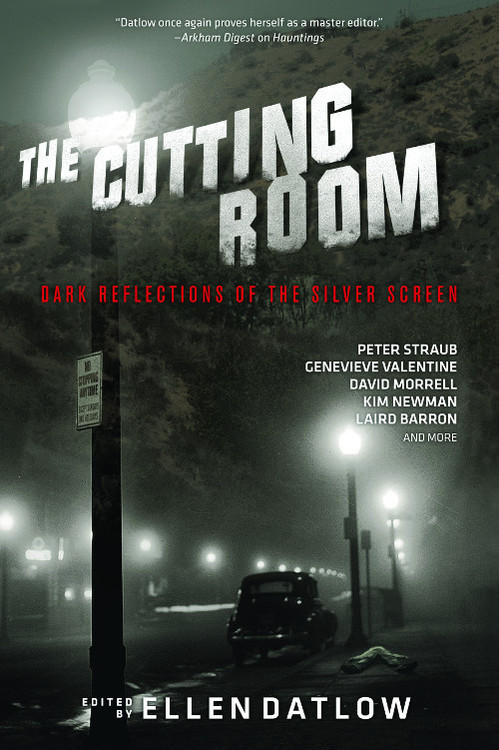THE CUTTING ROOM rarely deals directly with film. Instead, the stories reflect it.

Michael R. Collings in his Collings Notes examines the nuances of The Cutting Room: Dark Reflections of the Silver Screen, the new anthology from the award-winning, superstar editor Ellen Datlow.
As befits this meticulously modulated cover, the twenty-three pieces in The Cutting Room: Dark Reflections of the Silver Screen rarely deal directly with film. Instead, they reflect it, they cast it back and mirror it, often from unique perspectives, more than occasionally using lenses that distort and twist in order to assert deeper realities.
<snip>
The stories range from relatively straight-forward narrative; to narrative transmuting seamlessly into script, bringing characters—and readers—into the texture of a film; to narrative as verbal representation of filmic hyper-realism, existentialism, absurdism, surrealism, and several other –isms. The first, Edward Bryant’s “The Cutter,” reads literally as a man’s descent into madness from unrequited love; on other levels, it seems concerned with society’s unrequitable love for realities that can exist only in movies. The last, Kim Newman’s devastatingly funny “Illimitable Dominion,” conjures a world overtaken by the ghost of Edgar Allan Poe and the spate of Poe-based films that were produced in the mid-1960s. Every story in between modulates carefully between direction and indirection, between implication and inference.
<snip>
A film exists as images projected onto a screen. The process of film, this anthology proclaims, is never-ending, stepping down from the screen and into the imaginations of the audience, where it continues to grow, to permute, to change…itself and the beholder.
Read the rest of Colling’s review on eponymous site.
For information on The Cutting Room: Dark Reflections of the Silver Screen, visit the Tachyon page.
Cover by Josh Beatman.
